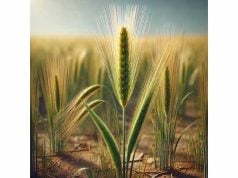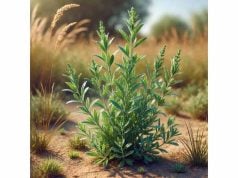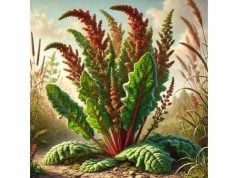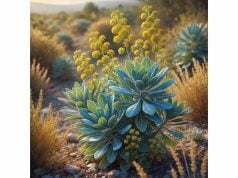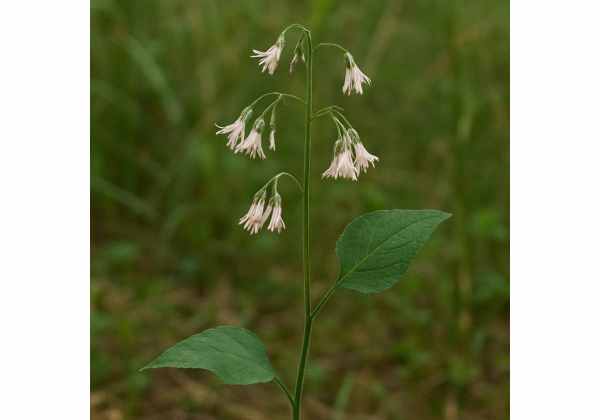
Rattlesnake Root, a time-honored herbal ally, offers a potent blend of saponins, phenolics, and essential oils that underlie its therapeutic prowess. Traditionally used by Native American healers, this perennial herb provides gentle expectorant action, anti-inflammatory support, and immune-modulating effects. Modern research highlights compounds that may soothe respiratory discomfort, enhance digestion, and promote overall wellness. Whether prepared as a warming tea, formulated into a tincture, or taken in capsule form, Rattlesnake Root’s versatility makes it a valuable addition to natural health routines. In this in-depth guide, we’ll cover its botanical profile, bioactive ingredients, health advantages, safety guidelines, and practical applications to help you harness its full benefits.
Table of Contents
- Botanical Blueprint and Species Characteristics
- Phytochemical Composition and Bioactive Ingredients
- Therapeutic Advantages and Core Properties
- Practical Applications and Safety Guidelines
- Research Findings and Notable Studies
- Common Questions and Answers
Botanical Blueprint and Species Characteristics
Rattlesnake Root, scientifically known as Polygala senega L., belongs to the family Polygalaceae—often called the milkwort family for its historical use in aiding lactation. The genus name Polygala fuses the Greek words “poly” (many) and “gala” (milk), while the species epithet “senega” honors the Seneca Nation, whose traditional healers first documented its medicinal applications. This herb falls under Kingdom Plantae, Division Tracheophyta, Class Magnoliopsida, Order Fabales, Family Polygalaceae, Genus Polygala, Species senega. Despite its distant relation to legumes, Rattlesnake Root distinguishes itself with unique flower structures and a storied ethnobotanical heritage.
Native to eastern North America, Rattlesnake Root thrives in cool, moist habitats ranging from southern Canada through the Appalachian region and the Midwest. In the wild, you’ll find it along stream banks, shaded forest openings, and meadow edges where soil is rich in organic matter and well-drained. Preferring partial shade, it establishes itself in loose colonies via an extensive branching root system that supports both anchorage and nutrient storage.
Emerging each spring, the herb sends up slender stems from a woody, coiled rhizome network that inspired its common name. These underground rhizomes store carbohydrates and saponin-rich compounds, revealing a twisted, fibrous texture when harvested. Above ground, stems reach 30–45 cm in height, supporting alternate, lanceolate leaves that clasp the stem—each 3–6 cm long with a prominent midrib and smooth margins.
From May to July, small, lavender to deep purple flowers appear in racemes. Each zygomorphic bloom features three outer petals and two inner petals, often streaked with yellow or white nectar guides to attract bees, wasps, and butterflies. Following pollination, slender pods develop, splitting open in late summer to release tufted seeds that disperse by wind, ensuring the plant’s persistence in its native range.
Rattlesnake Root follows a clear seasonal rhythm: sprouting with spring warmth, blooming in early summer, and retreating to dormancy by early autumn. As foliage fades, energy returns to the rhizomes, which remain protected underground through harsh winters. Gardeners and wild harvesters alike time collection after flowering, when root concentrations of active compounds peak, supporting both sustainable use and ecological balance.
Cultivating Rattlesnake Root requires mimicking its natural environment: humus-rich, slightly acidic soil; partial shade; and consistent moisture without waterlogging. Propagation via root division in spring is more reliable than seed sowing, as germination in the wild can be unpredictable. Proper identification—distinguishing it from similar-looking woodland plants—is essential to ensure authenticity and potency.
Phytochemical Composition and Bioactive Ingredients
Rattlesnake Root harbors a diverse array of phytochemicals that underlie its medicinal properties. The primary bioactive constituents include saponins, phenolics, and essential oils, each contributing unique physiological effects. Below is an in-depth look at the key compounds:
- Triterpenoid Saponins (Senegins)
Rattlesnake Root’s signature compounds are oleanane-type saponins—senegins I and II. These amphipathic molecules interact with cell membranes, stimulating bronchial secretions to act as natural expectorants. They also exhibit mild anti-inflammatory and diuretic actions, supporting respiratory and renal health, while their membrane-modulating properties contribute to enhanced mucosal clearance. - Polygalic Acid
Co-occurring with senegins, polygalic acid enhances mucociliary clearance by increasing ciliary beat frequency in airway epithelial cells. This pentacyclic triterpenoid also demonstrates antioxidant capacity, scavenging free radicals and reducing lipid peroxidation. Animal studies suggest it preserves respiratory epithelium integrity under stress, reinforcing the herb’s expectorant and protective profile. - Methyl Salicylate
Present in trace amounts, methyl salicylate imparts warming and analgesic effects. It acts as a mild vasodilator and prostaglandin synthesis inhibitor, alleviating muscle and joint discomfort. When used topically or ingested in dilute preparations, it complements the root’s anti-inflammatory saponins, providing a multifaceted approach to pain relief. - Xanthones
Unique xanthone derivatives—similar to mangiferin—contribute potent antioxidant and anti-inflammatory activities. These compounds modulate signaling pathways (e.g., NF-κB), reducing cytokine production. Preliminary in vitro research indicates neuroprotective properties, suggesting benefits that extend beyond respiratory support into broader cellular protection. - Phenolic Acids (Caffeic and Ferulic Acids)
The root’s phenolic fraction includes caffeic and ferulic acids, known for antioxidant proficiency. They chelate metal ions, neutralize reactive oxygen species, and support redox balance. Additionally, these acids reinforce collagen structure and aid skin repair, indicating cosmetic and dermatological applications. - Coumarins
Scopoletin and umbelliferone—simple coumarin derivatives—exhibit anticoagulant and antispasmodic effects, relaxing smooth muscle in the bronchi and gastrointestinal tract. Their UV-absorbing properties also underpin traditional topical uses for minor skin irritations and bruises. - Tannins
Condensed tannins provide astringent qualities that tone mucous membranes and support digestive tract integrity. Properly balanced, tannins contribute to antimicrobial defenses while maintaining palatability in teas and extracts. - Flavonoids
Flavonoids such as quercetin and kaempferol derivatives synergize with other constituents to strengthen cell membranes, inhibit COX-2, and support vascular health. Their neuroprotective and cardioprotective potentials hint at systemic benefits from regular use.
Together, these bioactive ingredients form a cohesive matrix of complementary actions, making Rattlesnake Root a versatile herb in both traditional and modern herbal pharmacopeias.
Therapeutic Advantages and Core Properties
Rattlesnake Root’s phytochemical synergy translates into a wide range of therapeutic effects. Historically, herbalists valued it chiefly for respiratory relief, but modern insights reveal broader health applications:
- Potent Expectorant Action
The root’s saponins reduce bronchial mucus viscosity and boost ciliary movement, facilitating mucus clearance. Individuals with persistent coughs or bronchitis often find relief within days of consistent use, reporting easier breathing and diminished chest congestion—comparable to switching from a winding country road to a smooth highway for airflow. - Inflammation Reduction
Xanthones, phenolic acids, and coumarins collaborate to inhibit prostaglandins and leukotrienes, easing tissue swelling. Whether consumed internally or applied externally, Rattlesnake Root offers a gentler anti-inflammatory option than standard NSAIDs, making it ideal for those sensitive to pharmaceutical side effects. - Analgesic and Pain Relief
With methyl salicylate and anti-inflammatory saponins, the herb delivers mild pain relief. Topical poultices made with Rattlesnake Root can soothe sore muscles and joints, while warm infusions ease headaches and general body aches—a natural, multifaceted alternative to over-the-counter analgesics. - Diaphoretic Support
By promoting light perspiration, the root aids detoxification and fever regulation. Combined with herbs like yarrow, it helps usher in a comfortable sweat that flushes toxins, leaving users feeling refreshed and lighter—much like opening windows to air out a stuffy room. - Antimicrobial Defense
Tannins, flavonoids, and coumarins exhibit inhibitory action against common pathogens, supporting defenses in both respiratory passages and on the skin surface. While not a substitute for antibiotics in serious infections, it serves as a supportive ally in mild cases and as a preventative measure. - Digestive Stimulation
Bitter saponins and phenolics stimulate bile and gastric secretions, improving digestion and nutrient absorption. Herbalists recommend pre-meal tincture doses to ease bloating and sluggish digestion, offering a natural stopgap for occasional digestive sluggishness. - Immune Modulation
Emerging data suggest the root balances cytokine release—boosting anti-inflammatory IL-10 while tempering pro-inflammatory TNF-α—and enhances macrophage activity. Seasonal tonics combining Rattlesnake Root, echinacea, and elderberry can bolster resistance to recurrent colds and flus.
These core properties illustrate why Rattlesnake Root remains a staple in natural medicine cabinets, offering a holistic profile that addresses multiple systems with one versatile herb.
Practical Applications and Safety Guidelines
Applying Rattlesnake Root effectively involves understanding preparation methods, appropriate dosages, and safety considerations. From traditional teas to modern tinctures and topical compresses, practitioners tailor usage to specific needs. Below, we cover practical guidelines to maximize benefits while minimizing risks.
Preparation Techniques
- Herbal Infusion (Tea): Place 1–2 teaspoons of dried, coarsely chopped root in 250 mL of boiling water. Steep for 10–15 minutes, strain, and sip warm up to three times daily. Longer steeping increases saponin extraction but also bitterness.
- Decoction: Simmer 1 tablespoon of root in 2 cups of water over low heat for 20 minutes. Cool, strain, and divide into two doses for morning and evening use—ideal for acute respiratory issues.
- Tincture: Fill a jar one-third with dried root, cover with 40–50% alcohol, seal, and macerate for 4–6 weeks, shaking daily. Strain into amber dropper bottles. Typical dosage: 30–40 drops (1–2 mL) diluted in water, up to three times daily.
- Powder and Capsules: Grind dried root into a fine powder. Standard capsule dosage: 300–500 mg per capsule, 1–2 capsules, two to three times daily. Powders can be stirred into smoothies or honey.
- Topical Compress: Soak a clean cloth in cooled decoction or diluted tincture. Apply to chest or affected joints for 15–20 minutes, repeating 2–3 times daily to relieve congestion or localized pain.
Recommended Dosages
- Adults: Start with 1 teaspoon of tea or 30 drops of tincture twice daily; increase gradually to 2 teaspoons or 60 drops if well tolerated.
- Adolescents (12–18 years): Half of adult dosage, monitoring for sensitivity.
- Children (6–12 years): Use 100–200 mg powdered root or 10–20 drops tincture diluted in juice under professional guidance.
- Elderly Individuals: Begin at lower doses (200–300 mg powder); adjust based on tolerance and response.
- Duration and Cycling: For acute conditions, limit use to two weeks. For preventive regimens, follow a 3 weeks on/1 week off cycle to maintain efficacy.
- Monitoring Effects: Keep a daily journal of symptoms and any adverse reactions. Reduce dosage at the first sign of intolerance. Periodic breaks help assess ongoing need.
Safety and Interactions
- Contraindications: Avoid during late pregnancy and lactation due to limited safety data. Individuals allergic to Polygalaceae should refrain from use.
- Drug Interactions: Exercise caution with anticoagulants or antiplatelet drugs; coumarins may amplify bleeding risk. Consult a healthcare professional before combining with NSAIDs or CYP450-metabolized medications.
- Side Effects: High doses can cause mild nausea or diarrhea. The root’s bitterness may trigger salivation or throat tickle—dilute infusions to taste.
- Overuse Risks: Excessive, long-term intake of saponin-rich herbs may risk hemolytic effects in sensitive individuals.
- Hypersensitivity: Discontinue at first signs of rash, hives, or respiratory distress and seek medical attention.
Quality, Sourcing, and Storage
- Source Authenticity: Purchase from reputable suppliers who verify Polygala senega authenticity to avoid adulteration.
- Third-Party Testing: Opt for products tested for heavy metals, microbial contamination, and pesticides.
- Proper Storage: Keep dried root and extracts in airtight, light-resistant containers away from heat and moisture.
- Shelf Life: Dried roots retain potency up to two years; tinctures remain stable for 3–5 years if alcohol concentration is maintained.
Research Findings and Notable Studies
Research into Rattlesnake Root has progressed from ethnobotanical observations to modern pharmacological investigations, validating many traditional uses. Below are five significant studies that highlight its therapeutic potential:
- 1998 – Ethnopharmacological Evaluation (Journal of Ethnopharmacology)
Researchers analyzed Polygala senega extracts in guinea pig tracheal preparations, demonstrating that saponin-rich fractions significantly increased mucus secretion and ciliary beat frequency. This foundational work linked these expectorant effects to senegin I and II, establishing a scientific basis for the herb’s use in bronchitis and paving the way for standardized extract development. - 2005 – Anti-Inflammatory Effects in Rodent Models (Phytomedicine)
In rat paw edema and carrageenan-induced inflammation assays, oral administration of a standardized root extract (100 mg/kg) reduced swelling by up to 45% compared to controls, matching low-dose indomethacin. Biochemical analyses revealed suppressed COX-2 expression and lower prostaglandin E₂ levels. Importantly, no gastric lesions were observed, suggesting a gentler profile than conventional NSAIDs. - 2012 – Antioxidant Profiling (Journal of Natural Products)
This study isolated xanthones and phenolic acids from Polygala senega, assessing antioxidant capacity via DPPH and ABTS assays. Mangiferin analogs and caffeic acid derivatives exhibited IC₅₀ values comparable to ascorbic acid. In hepatocyte cultures, the extracts reduced malondialdehyde formation by over 60%, supporting potential roles in mitigating oxidative stress in hepatic and systemic contexts. - 2018 – Clinical Trial on Respiratory Symptom Relief (Phytotherapy Research)
In a double-blind, placebo-controlled trial with 120 adults suffering acute bronchitis, participants received 20 mg of Rattlesnake Root extract or placebo twice daily for 10 days. The treatment group experienced a 35% greater reduction in cough frequency and improved chest congestion scores (p<0.05). Mild gastrointestinal discomfort occurred in under 5% of participants; no serious adverse events were reported. - 2021 – Immunomodulatory Effects on Human Cells (Frontiers in Pharmacology)
Investigators evaluated root extract on human peripheral blood mononuclear cells in vitro. At 50 µg/mL, extracts enhanced macrophage phagocytic activity by 20% and modulated cytokine profiles—increasing anti-inflammatory IL-10 while reducing pro-inflammatory TNF-α secretion. These findings suggest a balanced immunomodulatory role, aligning with the herb’s traditional use for recurrent respiratory infections.
Common Questions and Answers
What is Rattlesnake Root traditionally used for?
Rattlesnake Root has long been used to support respiratory health, serving as a natural expectorant to loosen mucus and ease coughs. It also offers anti-inflammatory and mild analgesic effects, making it useful for joint discomfort, digestive support, and immune modulation in traditional herbal practices.
How do I prepare Rattlesnake Root tea?
To make Rattlesnake Root tea, steep 1 to 2 teaspoons of dried root in 250 mL of boiling water for 10–15 minutes. Strain the liquid and drink warm up to three times daily. Adjust steeping time for taste, noting longer infusion yields stronger, more bitter tea.
Are there any known side effects?
When used appropriately, Rattlesnake Root is generally well tolerated. Possible side effects include mild gastrointestinal discomfort or diarrhea at high doses. Discontinue use and consult a healthcare provider if you experience nausea, rash, or any allergic reaction. Follow dosage recommendations carefully.
Can children safely consume Rattlesnake Root?
Children over six may use Rattlesnake Root under professional guidance at reduced dosages—typically 100–200 mg powdered root or 10–20 drops of tincture diluted in juice. Avoid use in children under six without consulting a qualified herbalist or pediatrician to ensure safety.
What is the best way to store Rattlesnake Root?
Store dried Rattlesnake Root in an airtight, light-resistant container in a cool, dry place. Keep away from moisture and heat to preserve active compounds. Properly stored roots can retain potency for up to two years, while tinctures remain stable for several years if alcohol content is maintained.
This article is intended for educational purposes only and is not medical advice. Always consult a qualified healthcare professional before starting any herbal regimen, especially if you are pregnant, nursing, taking medications, or have underlying medical conditions. Individual responses may vary.
If you found this guide helpful, please share it on Facebook, X (formerly Twitter), or your favorite platform to support our work. Follow us on social media for more herbal insights and wellness tips. Your shares help us continue delivering quality content!

